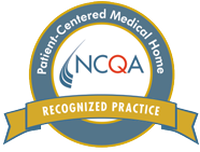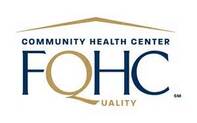|
From 15-17 years of age, at your child's yearly well child check the provider may:
|
Growth and development.
By age 15, it's common for teens to:
By age 15, it's common for teens to:
- If female, have gotten a first period by now. If your daughter hasn't, talk to your doctor
- If male, show signs of pubertal development
- Be influenced by their peer group
- Begin to think abstractly and reflect on how to make decisions, but still be impulse-driven and not think about the consequences of their actions
- Want to engage in risky behaviors
Looking Ahead
School
Encourage teens to engage in various activities like music, arts, sports, and clubs. Acknowledge achievements and offer support where needed. Provide a quiet homework space and minimize distractions. Address struggles with schoolwork by collaborating with school staff. Monitor peer influences to prevent risky behaviors like drinking or smoking.
Self
Spending quality time daily with your teen is vital. This includes sharing meals, being active, and having meaningful conversations. Establish clear rules, fair consequences for breaking them, and praise good decisions.
Be prepared to answer questions about puberty and associated feelings.
Encourage teens to maintain hygiene by bathing, using deodorant, brushing teeth, flossing, and seeing a dentist regularly. Watch for signs of depression like irritability, sadness, loss of interest, poor grades, and suicidal talk.
Safety
School
Encourage teens to engage in various activities like music, arts, sports, and clubs. Acknowledge achievements and offer support where needed. Provide a quiet homework space and minimize distractions. Address struggles with schoolwork by collaborating with school staff. Monitor peer influences to prevent risky behaviors like drinking or smoking.
Self
Spending quality time daily with your teen is vital. This includes sharing meals, being active, and having meaningful conversations. Establish clear rules, fair consequences for breaking them, and praise good decisions.
Be prepared to answer questions about puberty and associated feelings.
Encourage teens to maintain hygiene by bathing, using deodorant, brushing teeth, flossing, and seeing a dentist regularly. Watch for signs of depression like irritability, sadness, loss of interest, poor grades, and suicidal talk.
Safety
- Talk to your teen about the dangers of smoking, vaping, alcohol, and drugs.
- Teens should always wear a seatbelt while in a vehicle. Tell your teen to never get into a car with a driver who has been drinking or doing drugs. Instead, let your teen know to always call you for help.
- Remind your teen to wear a helmet while riding a bike, skateboard, or scooter. Your teen should wear the right protective equipment, like mouth guards and pads, when playing sports.
- Teens should apply sunscreen of SPF 30 at least 15 minutes before going outside and reapply about every 2 hours.
- Monitor and control your teen's internet use by placing the family computer in a visible location, installing safety filters, and checking browser history.
- Talk to your teen about online safety, , and using social media wisely.
- Ensure your teen has essential needs met like food, housing, and health insurance. Consult your doctor for community resources or a social worker referral if needed.
|
Young adulthood is the beginning of so many things. There’s often college and career and the plunge into more serious relationships. But the exciting aspects of growing up can overshadow the more mundane parts, one of which is health maintenance. Preventive screenings, wellness exams and checkups are important at all ages. You take your car in for a checkup, why wouldn’t you do the same for your body and your mind? But many of today’s young and healthy forgo doctor visits for other priorities. It’s a trend seen in a growing body of evidence. Millennials and Generation Z feel overwhelmed by jam-packed schedules and the potential confusion and cost of health care. Many of them are used to relying on their parents to schedule doctor appointments and figure out health plan coverage. It’s hard to argue with the sometimes cumbersome and tedious parts, but developing health care wherewithal at a young age is critical. It can only benefit a person as they go through life. If you’re new to adulthood, consider the following a starting point and reference guide to help you take charge of your health.
Starting a new chapter in life can be exciting, but it can also be overwhelming. While many young adults are focused on college, careers, and relationships, it's crucial not to neglect health maintenance. Preventive screenings, wellness exams, and check-ups are essential at all ages. After all, you bring your car in for maintenance, so why not prioritize your body and mind in the same way? Unfortunately, many young and healthy individuals tend to overlook doctor visits due to their busy schedules and concerns about health care costs. Evidence shows that Millennials and Generation Z are particularly prone to this trend. Relying on parents to schedule appointments and understand health plan coverage can also contribute to this issue. Despite the tedious and cumbersome aspects of health care, it's critical to develop health care awareness at a young age. Taking charge of your health now will only benefit you in the long run. If you're new to adulthood, consider the following guide as a starting point to prioritize your health. |
Annual physical exams:
Check-ins are critical to help prevent the development of major health issues. At a yearly visit, your primary care provider will:
Skin scan: It’s a good idea to meet annually with a dermatologist and have your skin examined head-to-toe. The provider will take note of any concerning moles or spots and remove any that require treatment.
Dental visits:
Oral health is key to staying healthy. Everyone, even people with little risk of cavities or gum disease, should see a dentist twice yearly for cleanings.
Women only: An annual visit to the gynecologist helps keep track of reproductive health. Providers recommend women start to get routine tests like a pelvic exam and pap smear at age 21.
Men only:Your primary care provider may recommend that you visit annually to check your reproductive and prostate health.
Check-ins are critical to help prevent the development of major health issues. At a yearly visit, your primary care provider will:
- Your height, weight, BMI and blood pressure will be measured.
- Your exam will include a behavioral risk screen.
- Your will have a complete head-to-toe physical examination.
- Throughout the visit, you will have opportunities to talk with the provider about questions and concerns you may have. In addition, your provider will give you information about risk reduction and talk about avoiding peer pressure.
- Answer any questions
- Discuss diet and exercise habits, including smoking, drug and alcohol use
- Discuss mental health issues, including stress and depression
Skin scan: It’s a good idea to meet annually with a dermatologist and have your skin examined head-to-toe. The provider will take note of any concerning moles or spots and remove any that require treatment.
Dental visits:
Oral health is key to staying healthy. Everyone, even people with little risk of cavities or gum disease, should see a dentist twice yearly for cleanings.
Women only: An annual visit to the gynecologist helps keep track of reproductive health. Providers recommend women start to get routine tests like a pelvic exam and pap smear at age 21.
Men only:Your primary care provider may recommend that you visit annually to check your reproductive and prostate health.








